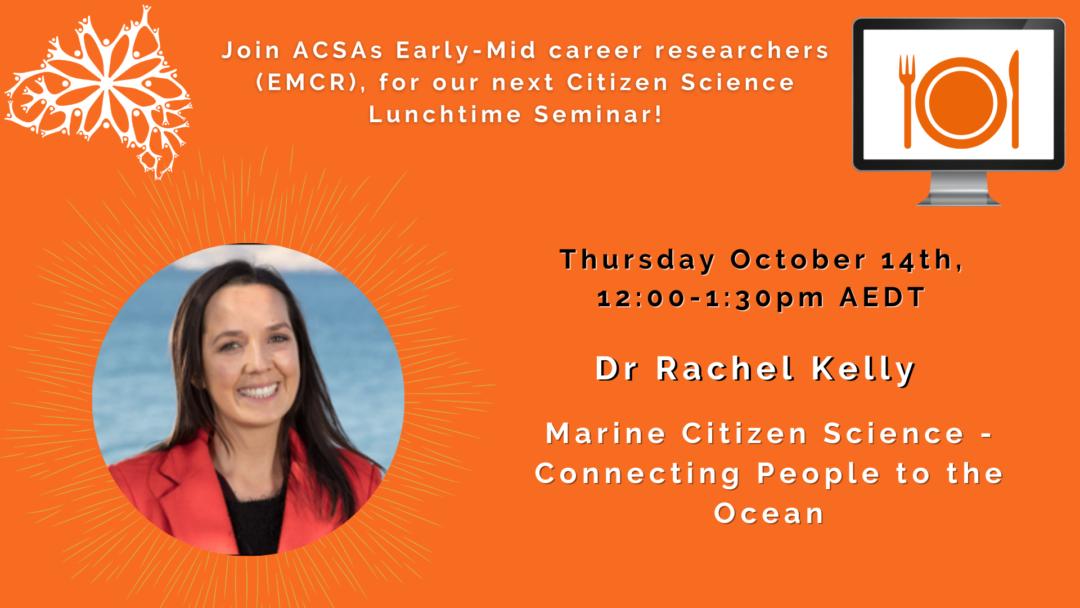Dr Rachel Kelly will be presenting an online seminar at the University of Sydney.
Abstract: More effective efforts are urgently required to improve the capacity of marine conservation action worldwide, as highlighted by the United Nations Decade of Ocean Science for Sustainable Development 2021–2030. Marine citizen science presents a promising avenue to enhance global engagement in marine conservation. Building on an expanding field of citizen science research and practice, this presentation describes a global survey of marine citizen science and presents an overview of the current extent and potential of marine citizen science and to contribute to enhanced marine conservation. In particular, project challenges and opportunities are identified to assess whether and how citizen science can lead to new scientific knowledge, enhanced ocean literacy, and resulting environmental stewardship. In addition, key drivers of ocean literacy are explored to determine how marine citizen science can best support the vision of the Ocean Decade – including participant education, cultural connections, tech developments and knowledge transfer.
Bio: Dr Rachel Kelly is a marine socioecologist and postdoctoral research fellow at the Centre for Marine Socioecology in Tasmania and the Future Ocean and Coastal Infrastructures (FOCI) Consortium, Canada. She is currently based in Hobart, Tasmania. Her research focuses on the human dimensions of ocean sustainability, including foresighting, ocean literacy, social licence, and citizen science. Rachel's postdoctoral research investigates interdisciplinary approaches to achieving full-spectrum marine sustainability, with a focus on the application and development of foresighting in the marine context. Rachel’s work is largely interdisciplinary, working with diverse teams to develop sustainable solutions to ocean challenges, including in the Future Seas 2030 project. This work has involved collaborative research projects in and with the Centre for Marine Socioecology, the World Maritime University in Sweden, the Australian National University in Canberra, iDiv in Germany, and other international interdisciplinary groups.
When: 14 October 2021, 12:00-1:30 pm
Join the seminar here.
